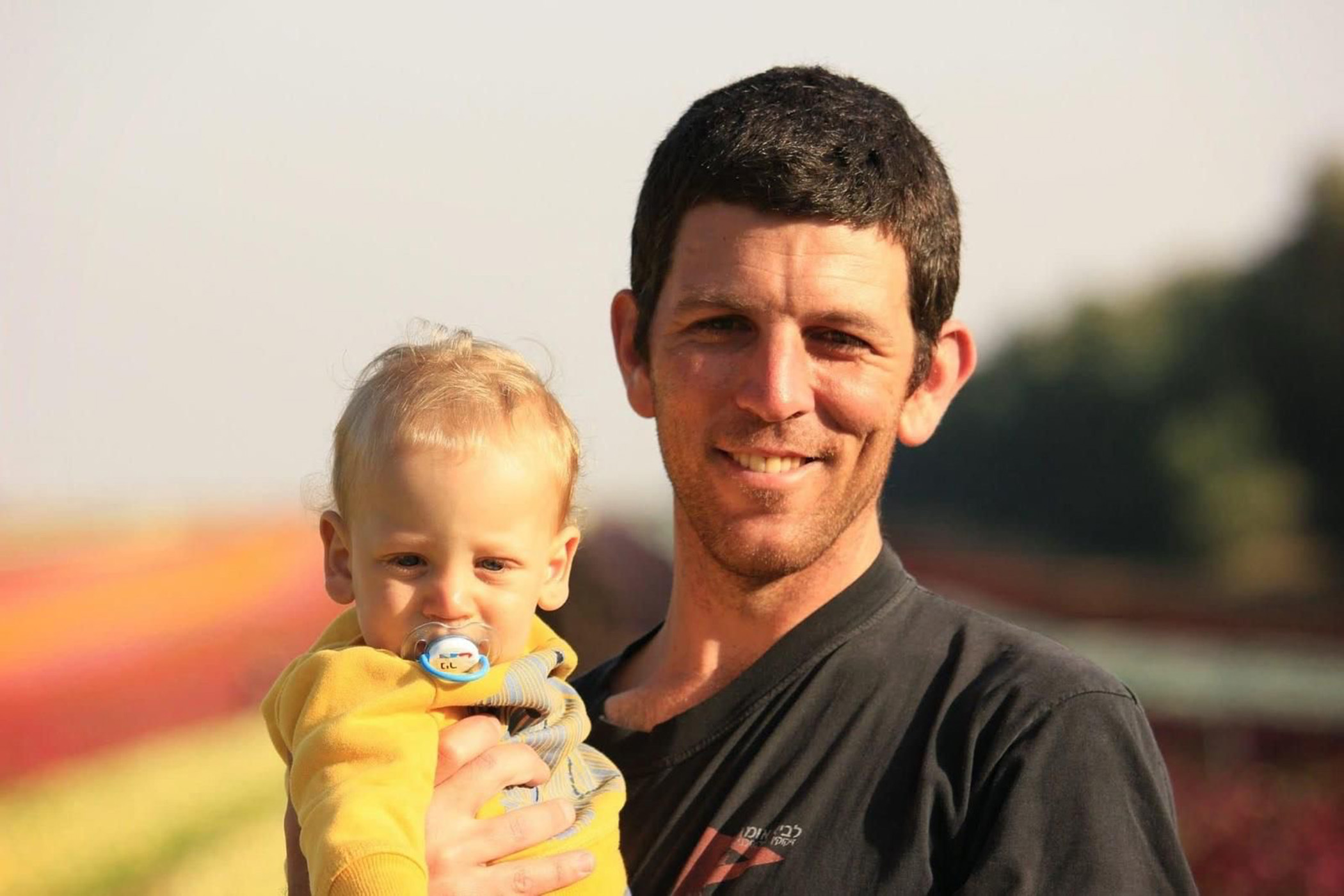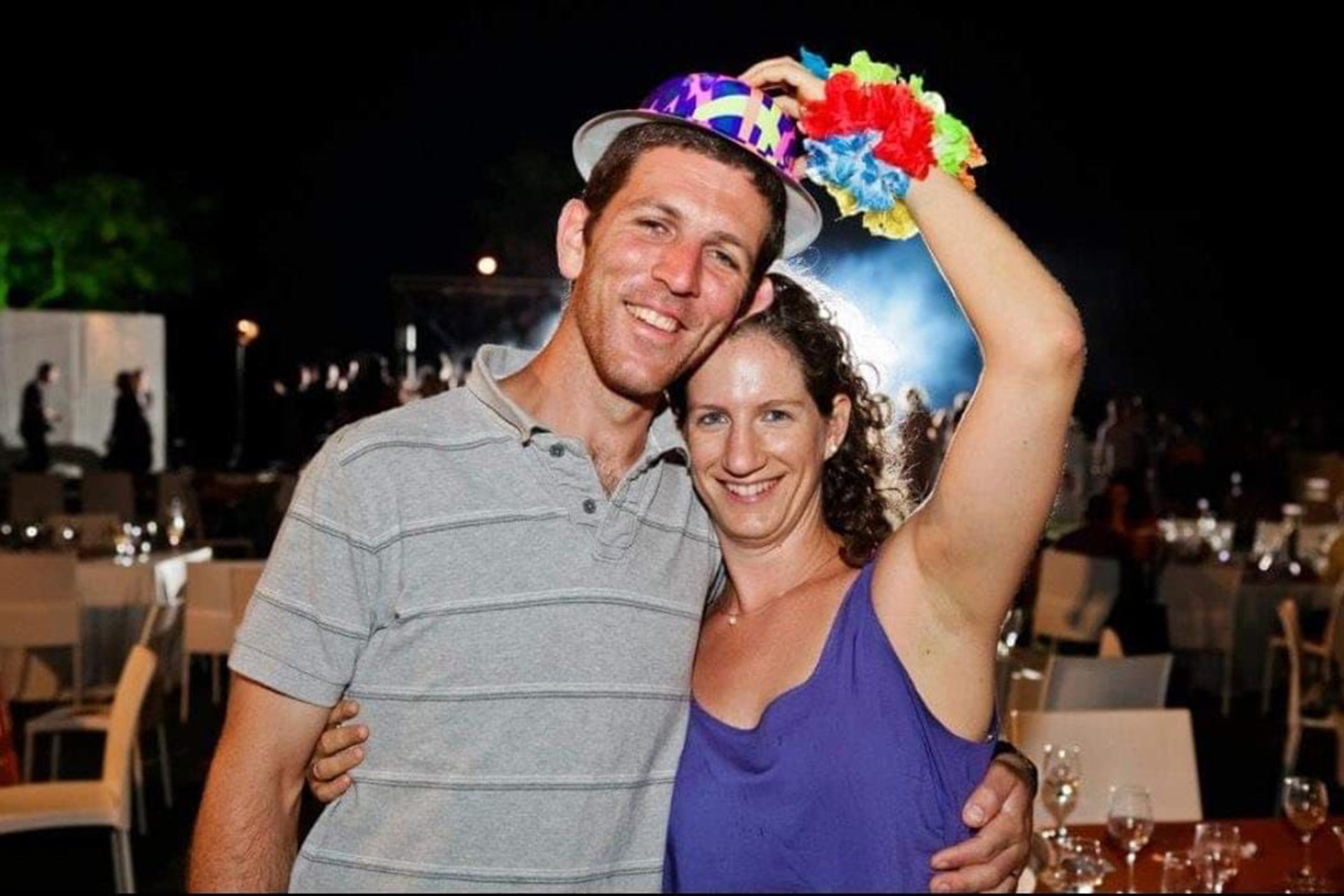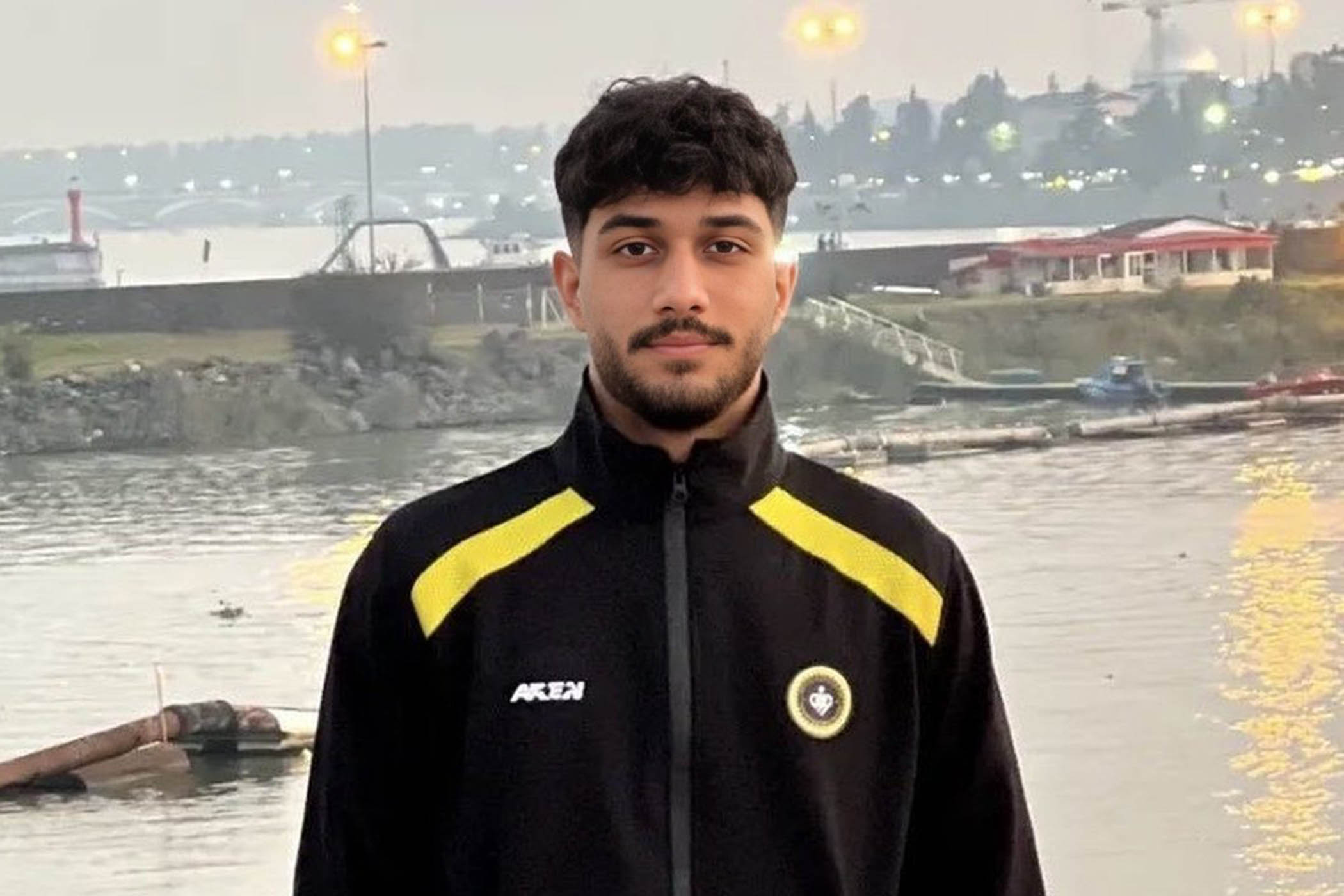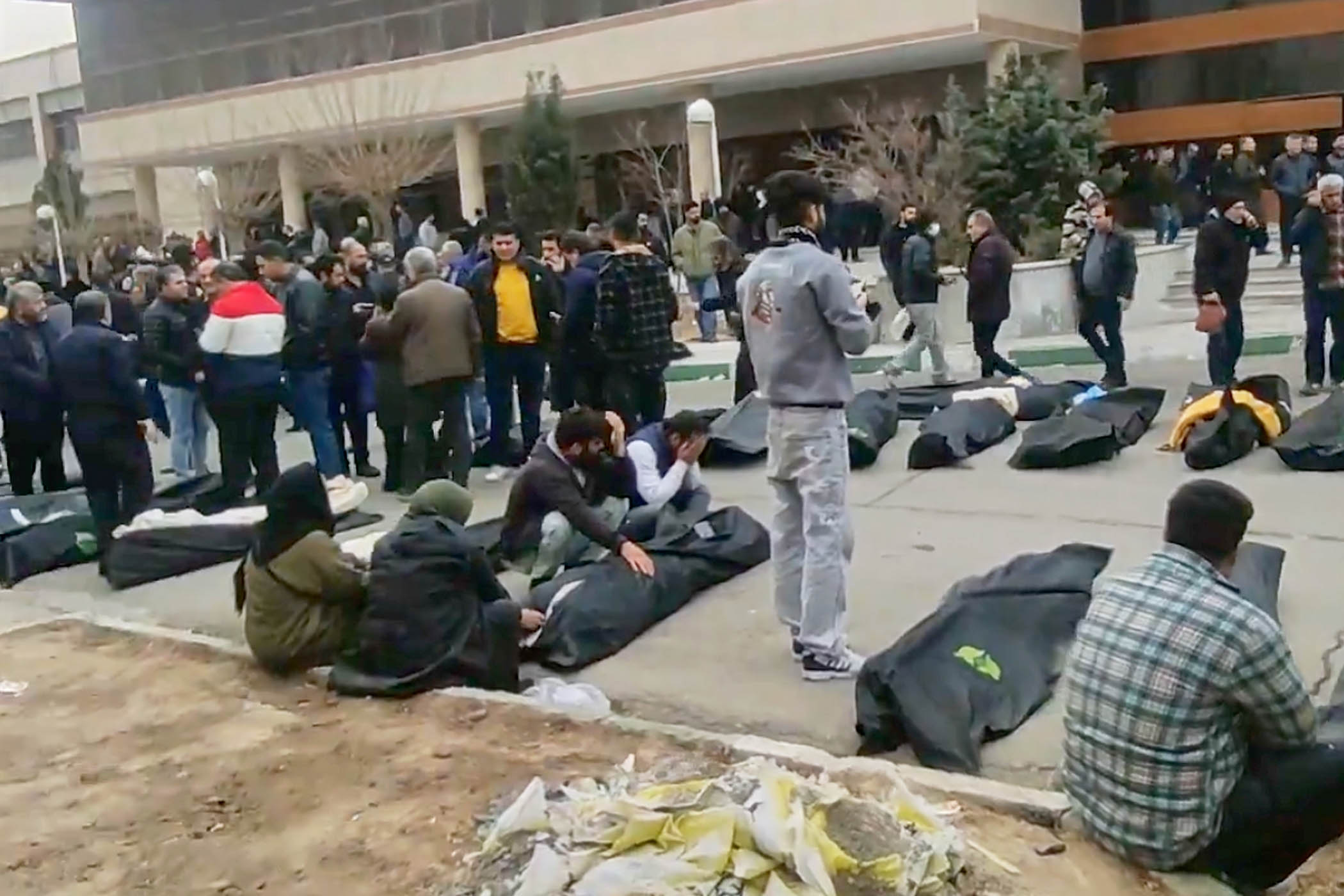At 6.29am on 7 October 2023, Hamas launched a barrage of more than 1,000 rockets at Israel. They were mainly aimed at military bases and, initially, Ela Haimi had wanted to stay in bed. Three weeks previously, she and her husband, Tal Haimi, had found out she was expecting their fourth child. She was tired. But he had insisted they head for their safe room with their 10-year-old twins and seven-year-old son.
Their young family would pay a terrible price for the events of that day.
Tal, 41, was a mechanical engineer on the agricultural kibbutz Nir Yitzhak. He repaired tractors, maintained factory machines and was the deputy chief of a small, 13-strong security team. He was one of the community’s pillars of strength, always the first to lend a hand.
“He was not a hero or a violent man,” says Ela over the phone from their house. “He was a simple person. We knew each other from the age when we were born, but we became a couple just when I was 17. He just said: ‘You’re the woman I want to marry.’ He liked to do simple things.
“We were just a regular family. He liked to do homework with the kids. Made sandwiches in the morning, reading books before sleeping, just normal. It was inevitable that he would volunteer to protect people. He just wanted to protect us.”
The kibbutz, located in the north-western Negev, was established in December 1949 by Holocaust survivors and is affiliated with the Hashomer Hatzair youth movement, born from a socialist party that rejected the idea that Israel should be a Jewish state in favour of sharing the land with Palestinians and Jews equally. It has just over 500 residents and Tal was third generation, related to the founders.
At 6.41, Hamas breached the border just across from Nir Yitzhak and headed for the kibbutz. A few minutes later, Tal received an alert, put on his uniform, picked up his gun and warned Ela to lock the front door. The safe room door was broken.
Just after 7.30am, Hamas’s elite Nukhba force took control of the security checkpoint and entered the kibbutz. Its first target was a factory near the gate, which it set fire to. Tal and his close friend Lior Rudaeff made it to the gate and started shooting. They were joined by the security chief Yaron Shahar and another guard, Arnon Peled. Together, they pushed Hamas back before reports of rocket attacks sent Shahar and Peled back into the kibbutz.

Tal Haimi with one of the couple’s four children
Another 25 Hamas terrorists arrived in pick-up trucks and seven more on motorcycles at about 8.30am, and the two men held them off for almost an hour, Tal taking time to text Ela that he was OK. Tal was hit by a fragmentation grenade but carried on firing. Rudaeff was also wounded, and pulled his friend back into the kibbutz.
That group of attackers retreated but a third, 50-strong wave arrived at about 10am and, during the fighting, both men were killed. Their bodies were loaded on to pick-ups and taken back to Gaza, leaving just Rudaeff’s bloodstained glasses and Tal’s helmet.
Newsletters
Choose the newsletters you want to receive
View more
For information about how The Observer protects your data, read our Privacy Policy
Ela sat for hours in the safe room with her children. At noon, she sent Tal a WhatsApp message, but it was not received. “During those hours,” she said, “I started to think that I didn’t know what was going on with Tal. Our families, our friends – everything is going to be changed.
“But I still believed he was alive. The army came in the afternoon and found his helmet. They had taken a few hostages and in the evening, I was told his phone had been located in Khan Younis, which gave us hope.”
The ferocious defence offered by the kibbutz’s security force and the aid of an Israel Defense Forces tank that shelled the break in the fence where attackers were filling through meant that a serious assault was weakened. But six members of the security team were killed, and three living hostages taken – Oren Goldin, 33, Boaz Abraham, 61, and Ofek Arazi, 28. All were released in the November 2023 ceasefire.
Ela hoped Tal had been taken alive. But two months later, the family were told he was dead, killed defending his home, wife and children. Since then, they have fought to recover his body for a proper burial.
Ela later gave birth to their son Lotan. The family held a funeral for Tal and she accepted that he would not return alive, “but the children were not ready to accept it. They said: ‘Dad might still return.’”
The family joined the Hostages Family Forum, one of two rival and vehemently opposed hostage organisations. The forum is the largest, holding rallies in what has become known as “Hostages Square” in Tel Aviv, pushing the government to negotiate with Hamas and make concessions. The rival Tikva Forum is more hardline, arguing that military pressure on Hamas is the only viable strategy for securing the hostages’ unconditional release.
‘This government should just go. Leave and let someone else take your place’
‘This government should just go. Leave and let someone else take your place’
Ela Haimi
Like most kibbutzniks, and most of the Hostages Family Forum, Ela blames Benjamin Netanyahu for the events of 7 October. “We were well treated by the army authorities, but not always by the government,” she said. “Of course the government is at fault. They are our leaders. It doesn’t matter if I voted for them or not. They’re on the job. It is their duty.
“The war took two years, I hope, two years to end it. That’s a lot, far too much. This government should just go. Leave and let someone else take your place.”
The start of the US-brokered ceasefire, which came into effect on Friday, means a 72-hour countdown began, during which Hamas must release all 20 hostages who are believed to be alive and hand them over by 12:00 Monday while Israel will release 250 Palestinian prisoners serving life sentences in Israeli jails and 1,700 detainees from Gaza. A copy of the agreement published by Israeli media states that the handovers will take place “without any public ceremonies or media coverage”.
Ela is desperate for Tal’s body to return. The family have moved back into their house on the kibbutz along with about 80% of the residents. “I have a lot of hope for this ceasefire, but it’s not over until it’s over. We have very tense days, and it’s going to be hard. We have to wait until the last hostage is back and that’s hard. Tal has been sorely missed every day, during the pregnancy, at birth, and in every aspect of life.”
Tal’s uncle Zamir worries that it will be harder to find hostage bodies under the rubble of the heavy bombing. The 20 hostages believed to be alive are all young men.
Ela will be hoping that Tal’s body arrives on Monday so he can be buried in the kibbutz he loved and gave his life for. “It’s the best place on Earth,” she said. “We had good relations with the people of Gaza. My heart breaks until he is home.”
Photographs courtesy of Ela Haimi



